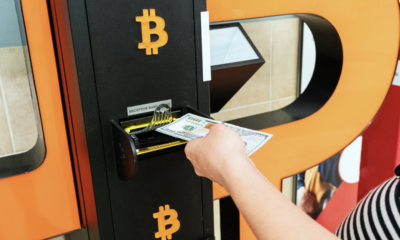Cryptocurrency
Indian regulators can use FinCEN rule as template
Cryptocurrency regulators in India can use FinCEN’s new rule, of having exchanges report transfers of digital assets such as Bitcoin above $10,000 to non-custodial (unhosted) wallets to the network, as a template.
FinCEN – the Financial Crimes Enforcement Network, a bureau within the US Department of the Treasury, proposed that banks and and money services businesses (MSBs) would have to submit reports, keep records abd verify the identity of customers in regards to transactions above certain thresholds (exceeding $10,000) involving convertible virtual currency (CVC) or digital assets with legal tender status (LTDA) wallets not hosted by a financial institution; or CVC/LTDA wallets hosted by a financial institution in certain jurisdictions identified by FinCEN. It said today’s action seeks to protect national security and aid law enforcement by increasing transparency in digital currencies and closing loopholes that malign actors may exploit.
Kashif Raza, co-founder Crypto Kanoon, said the FinCEN rule will not directly affect Indian users, but it can be used as a template by Indian regulators. Arjun Vijay, co-founder of Giottus Cryptocurrency Exchange, told Mint that the rule affects US individuals and US exchanges. “But if it is adopted by international bodies like the FATF, it will have a bearing on India,” he said. “I don’t think this will shift business outside the US. Exchanges outside the United States are already wary of accepting US customers due to the stringent regulation in the US.”
Also Read: Indian crypto exchanges monitor XRP lawsuit
Vijay believes the new rule will impact cryptocurrency volumes in the US. “The FinCEN rule will impose an additional layer of paperwork on customers when transferring money to non-custodial wallets,” he said. “They will have to provide Know Your Customer (KYC) for such wallets to exchanges. This can lead to some drop in crypto trading on US exchanges.”
Enforcement agencies in India, despite the lack of regulation, have been asking customers for KYC details from cryptocurrency exchanges. Raza pointed out that all major Indian exchanges mandate KYC and enforcement agencies know this. “They often call for records from such exchanges in specific cases. India is by no means a regulation free zone.”












































Pingback: Agri-tech startup Aqgromalin raises Rs 2 crore from angel investors | The Plunge Daily